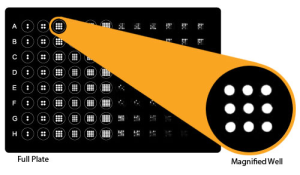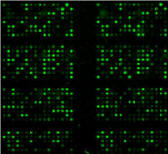As discussed in previous posts, use of new tools allows the finding of new disease-related biomarkers. Today, we want to put our spotlight on esophageal cancer.
A recent alliance between Quansys Biosciences and Allegheny Health Network has allowed the development of a novel 4-plex assay for use in the early diagnosis of esophageal cancer. Though esophageal cancer is rare, it often has deadly outcomes.
The panel, called B-AMP (biglycan, myeloperoxidase, annexin-A6 and protein S100-A9) showed clinical significance in the early diagnosis of several diseases, including Gastroesophageal Reflux Disease, Barret’s Esophagus, Dysplasia and Esophageal cancer. These results were recently published in Cancer.
The test, using the Q-plex technology, is already being used at Allegheny Health Network in a clinical trial setting to monitor the course of esophageal cancer, providing physicians with guidance on response to therapy or early notification of a recurrence and allowing them to pursue different or more aggressive therapies, if necessary.
Using the Q-plex technology allows the simultaneous quantification of several biomarkers, resulting in time savings, but also in economical and samples’s savings (especially for clinical samples, where available volume for testing may be scarce). This methodology allows for efficient sample consumption, ease of use and high quality results, with a very low CV.
Q-plex has also been successfully used in other custom developments, such as biomarkers for cardiac risk.
So if you are currently using standard ELISAs for quantifying your disease-related biomarkers, and would like to consider the development of a custom multiplex kit to see them all in one shot, don’t hesitate to call in support in developing it! Get in touch by leaving a comment below if you’re interested.


